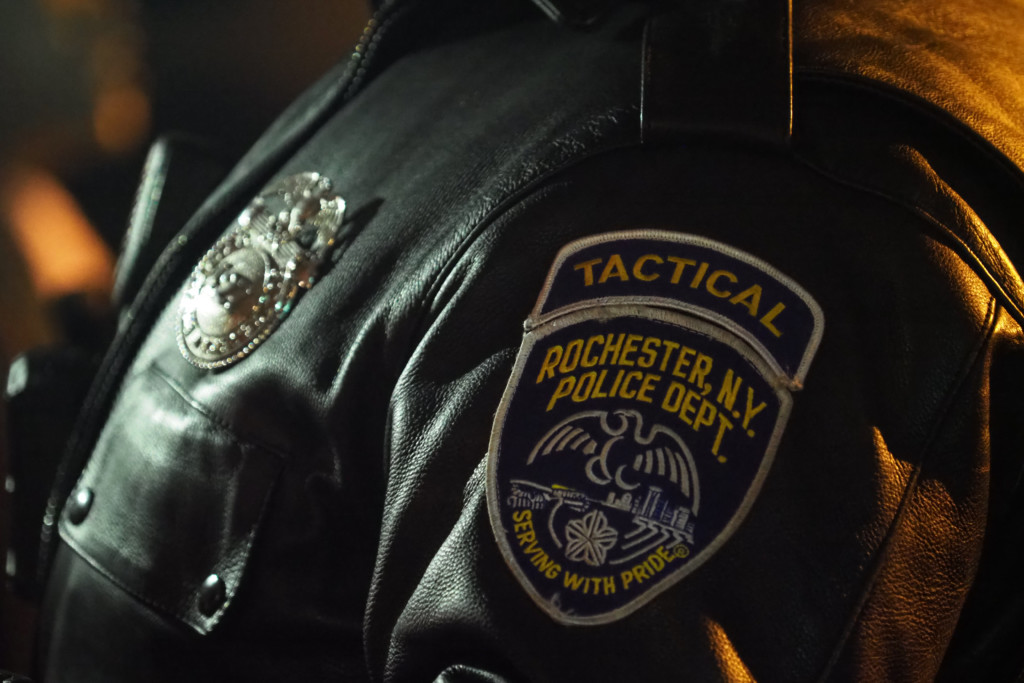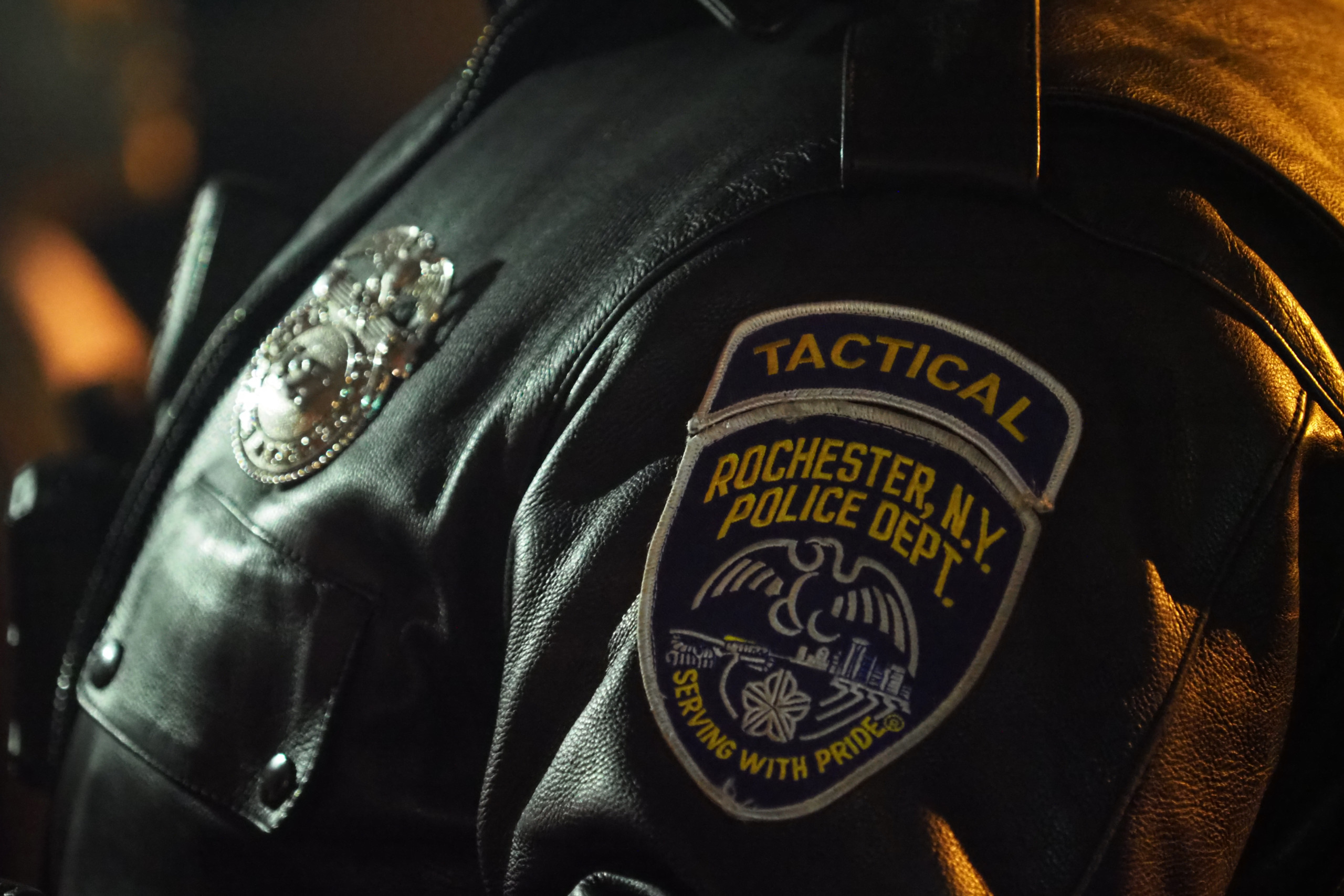When the Rochester Police Department (RPD) pepper-sprayed a 9-year-old girl, I waited for the good cops to come out of the woodwork and condemn the officers involved. I waited naively and in vain.
The best we got was Police Chief Cynthia Herriot-Sullivan saying, “I’m not going to stand here and tell you that for a 9-year-old to have to be pepper-sprayed is OK.”
“Have to be pepper-sprayed” is certainly an interesting choice of words. Have to? She’s nine.
RPD Union President Mike Mazzeo took it a step further and outright defended the pepper-spray trigger happy officers. Ignoring any question of ethics, Mazzeo shrugged and said they just didn’t violate any policies. Too bad, Rochester.
According to Mazzeo, using violent force against a child is only immoral when it’s also illegal. He would have us believe that the grown adults on the force shouldn’t reasonably be expected to critically examine their behavior if it isn’t expressly accounted for in a legal code. Apparently, if a cop screws up, it’s not the cop’s fault — it’s the fault of whichever lawmaker didn’t anticipate that he could do something so cruel.
Every time an incident of police brutality hits the news, you hear people differentiating the “bad cops” from the “good cops.” Sure, there are a few bad apples, they say (evidently forgetting that the full phrase is “a few bad apples spoil the bunch”), but those bad guys are a minority. Most cops are good cops.
So how do we define a “good cop?”
A good cop isn’t a cop that kneels alongside protesters for a few minutes. A good cop isn’t a cop that turns a protest into a “parade,” like this Michigan officer did during the George Floyd protests in May. These aren’t sufficient conditions for making any cop a good one. Nor does a good cop defend bad cops with a lazy, “They didn’t break any protocol, so everything’s okay.” A good cop doesn’t stay silent when bad cops commit murder — and get away with it.
I was heartened back in June when Minneapolis officers wrote a letter condemning Derek Chauvin, the man who killed George Floyd. Because a good cop is a cop who explicitly rejects and condemns the bad ones, one who at the very least acknowledges the flaws in American policing. You simply cannot be a good cop if you ally with (or even stay silent about) the ones who kill, maim, and traumatize.
I’m not saying those officers are perfect angels just because they wrote a letter. They haven’t solved policing or racism. But it’s a place to start, and apparently much more than other officers are willing to do.
When someone says “all cops are bastards,” they don’t mean that every individual cop is a puppy-kicking, mustache-twirling, cartoon villain. They mean that every cop, simply by choosing that profession, is upholding an oppressive system that hurts the most vulnerable. They mean that every cop is participating in the problem, until they decide to actively do otherwise.
Unfortunately, I simply can’t believe that most cops are good cops until I see most cops explicitly condemn and act against brutality. Mazzeo is not any better of a cop than the ones who pepper-sprayed that girl.
I’ve yet to see any other police officers do something like the Minneapolis officers who penned that letter. If someone knows of such an example of cops explicitly rebuking police brutality, then please let me know. But for now, I can’t think of any other “good cops” who’ve raised their voices to defend citizenry from police violence. Why wouldn’t the “good cops” want to make themselves known?
Any cop who aggressively resists reforms intended to make policing safer for citizens, that defends cops who kill or injure, who chooses silence, is a bad cop. Period.
From now on, don’t pay the most attention to the nice cops who play basketball with neighborhood kids. Don’t even let cops like the one who shoved 75-year-old Martin Gugino to the ground, fracturing his skull in the process, monopolize your attention. Be aware of the cops like the one who went to help Gugino, but seemingly caved to peer pressure when another officer pulled him away from the bleeding man. Be aware of the cops who put more energy into making the cops around them look better than they do into protecting and serving.



